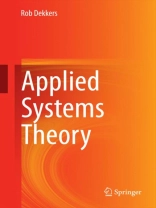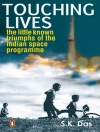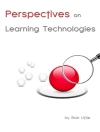Offering an up-to-date account of systems theories and its applications, this book provides a different way of resolving problems and addressing challenges in a swift and practical way, without losing overview and not having a grip on the details. From this perspective, it offers a different way of thinking in order to incorporate different perspectives and to consider multiple aspects of any given problem. Drawing examples from a wide range of disciplines, it also presents worked cases to illustrate the principles. The multidisciplinary perspective and the formal approach to modelling of systems and processes of ‘Applied Systems Theory’ makes it suitable for managers, engineers, students, researchers, academics and professionals from a wide range of disciplines; they can use this ‘toolbox’ for describing, analysing and designing biological, engineering and organisational systems as well as getting a better understanding of societal problems.
Tabla de materias
Introduction.- Basic Concepts.- System Approaches.- Processes.- Control of Processes.- Steady-State Model.- Autopoietic Systems.- Complex Adaptive Systems.- Organisations and Breakthrough.- Applications of System Theories.
Sobre el autor
Dr Rob Dekkers (Adam Smith Business School, University of Glasgow) is an active researcher and educator in industrial management and engineering. He uses Applied Systems Theory not only to teach students at all levels, including research students, but also practitioners, professionals and managers in state-of-the-art courses. During his industrial and later academic experience he himself has benefited from system thinking at many occasions for solving industrial problems and consulting companies. Others that have applied the concepts of Applied Systems Theory articulate that they have found it easier to understand holistically challenges they face, to solve problems with more direction and to convince others better of results and solutions. The concepts of Applied Systems Theory are also applicable to research. Dr Rob Dekkers has used systems theories for developing interdisciplinary contributions and research in operations and service management, industrial engineering, organisational design, collaborative (industrial) networks, outsourcing, business process modelling and innovation and technology management. These research projects make use of systems theories, the related science of complexity and evolutionary approaches. This wealth of experience, industrial and academic, have been brought together in this book for managers, practitioners, students and researchers.












